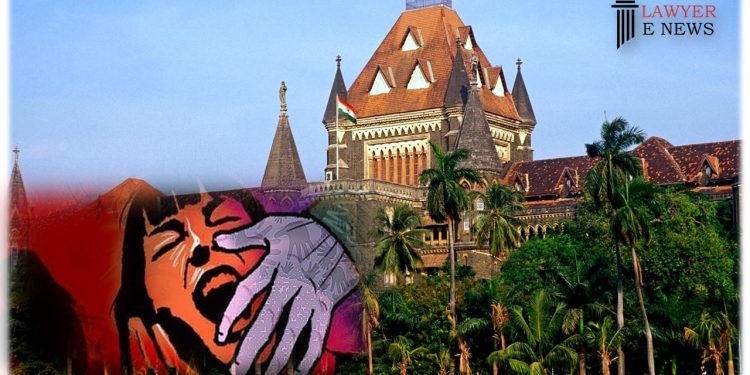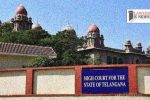Bombay HC Upheld The Conviction Of A Teacher to Raped His Student

In the recent Judgement Arvind Vs State D.D 30 Jan 2023 Bombay High Court held that the victim was a minor at the time of the incident, and it is proved by the school record that carries her date of birth. She was in the 7th standard, and therefore it is safe to presume that the accused had knowledge of her age. Accused, being a teacher of the victim, had access to the school record, from which he could have confirmed the victim’s age. The prosecution has successfully discharged its burden of proving that the victim was below 18 years of age on the day of incidence.
A teacher has been convicted of kidnapping and sexually assaulting a 7th grade student, according to a recent judgment by the Additional Sessions Judge in Bhoom. The victim’s father reported her missing on June 1, 2014, after receiving a call from the accused, who informed him that he had taken her on a long journey and that they would return in three to four days. The police investigated and found the victim and the accused in Trimbakeshwar, Nasik, after conducting a search. Medical examination confirmed that the victim had been sexually assaulted. The police registered a crime under Section 363, 366A, 376 , IPC Sections 6 and 4 of the Protection of Children from Sexual Offences Act, 2012 (POCSO Act) and conducted an investigation, during which they recorded statements of relevant witnesses. The victim girl and the accused were searched and traced at Trimbakeshwar, Nasik. Medical examination revealed that the victim had been sexually assaulted, and the crime to that extent was added. The Investigating Officer gathered necessary documents from school for ascertaining the age of the victim girl.
After completing the investigation, the accused was charge sheeted, and learned Special Judge, Bhoom conducted the trial. He thereby sentenced him. Aggrieved accused moved to High Court.
Appellant contended that the girl was not kidnapped or raped, as alleged by the prosecution, and that the girl had come with the accused on her own, as she had disclosed to him that she did not want to stay at home and rather intended to commit suicide.
Further contended that there is no conclusive evidence to prove that the girl was a minor, as no ossification test has been carried out, and that unverified school records have been relied upon by the prosecution and even considered by the trial judge.
It is also argued that the girl had voluntarily accompanied the accused to various places and that no force was exercised on her by the accused in any manner. However, the evidence presented by the prosecution has not been properly appreciated by the trial judge.
The State further argued that the allegation of performing a marriage is based on weak evidence, as the girl was never forced to wear a mangalsutra, and there is no proof of a marriage being performed. The trial judge failed to consider and appreciate the evidence adduced by the prosecution.
The further points out that medical evidence does not suggest any forcible sexual intercourse and that the doctor has opined that the girl was used to sexual intercourse. Therefore, with such quality of evidence and in the absence of cogent evidence, blame should not be shifted to the appellant.
Lastly, the Appellant contended that the prosecution’s evidence was without essential ingredients for bringing home the charge, and that the learned trial judge has accepted the prosecution case as proved and convicted the appellant despite several major infirmities in the findings and reasons. The defense counsel prays to allow the appeal by setting aside the impugned judgment and order.
On behalf of the state, the learned APP submits that the prosecution went to trial with strong, cogent, reliable evidence. The accused, who was a teacher of the victim, took advantage of his position and induced her to leave the company of her parents on the pretext of performing marriage. The accused forcibly took the girl to various places, and the father had lodged a prompt report about his daughter being kidnapped.
The State also pointed out that the investigating machinery has gathered evidence of accused performing marriage. The person from whom mangalsutra was purchased was also examined by prosecution. After taking her to lodge, he had forcible sexual intercourse with her. The girl has named the lodge where she was taken and testified to that extent. Her testimony is corroborated by medical evidence. According to learned APP, apart from committing forcible sexual intercourse, there was forcible penetrative sexual assault on her. Provisions of the POCSO Act are also attracted.
The learned APP contends that the trial Judge should have awarded imprisonment for life, taking into account the serious offense committed on a minor and the provisions of the POCSO Act. The State intends to question the same and is thereby praying to enhance the said sentence.
Observed And Held
The court found that the testimony of PW1, the medical examiner, confirms the victim had sexual intercourse and her age as 13, and that PW2, the father of the victim, reported her missing and identified the accused. PW3, the victim, testified in camera that the accused was her teacher and developed an intimate relationship with her. She recounted how she was taken by the accused and two other men to several locations where she was sexually assaulted multiple times. The court found no effective cross-examination regarding the point of the girl’s disappearance or the sexual exploitation.
High Court held that Victim was cross-examined on the point of her education, participation in gatherings, and drama. She was unable to tell exactly when accused handed over mobile handset to her before the incident. She denied telling the accused that there was a quarrel between her and her parents and that she wanted to commit suicide. The defence’s suggestions were flatly denied by her. There was virtually no serious cross-examination on the alleged events since she left the house till she was brought by police.
High Court also observed the victim was a minor at the time of the incident, and it is proved by the school record that carries her date of birth. She was in the 7th standard, and therefore it is safe to presume that the accused had knowledge of her age. Accused, being a teacher of the victim, had access to the school record, from which he could have confirmed the victim’s age. The prosecution has successfully discharged its burden of proving that the victim was below 18 years of age on the day of incidence.
High Court further held that the accused did not make any attempt to refute the allegations and case of prosecution by leading any evidence to show that he had no ill intentions. He failed to offer any explanation for his acts. His defense was that after quarreling with parents, victim had come to him expressing her desire to commit suicide, and to deviate her from doing so, he took her away to various places. With such a plea, he has accepted that he has taken away the girl with ulterior motives of developing intimacy with her.
High Court Upheld the Conviction. Appeal Dismissed
Arvind Vs State






